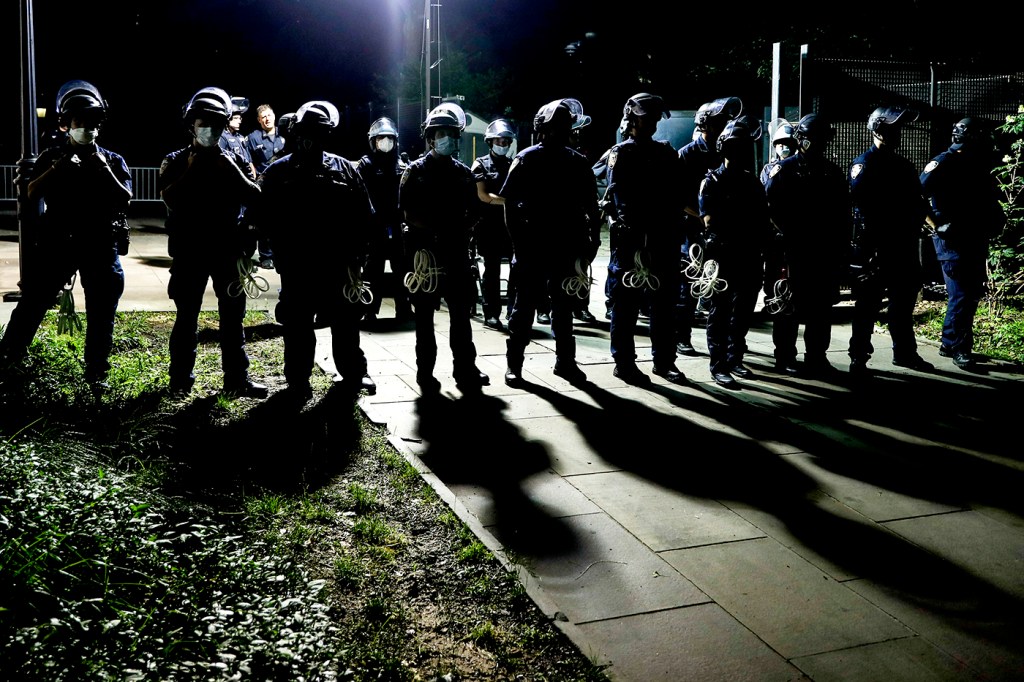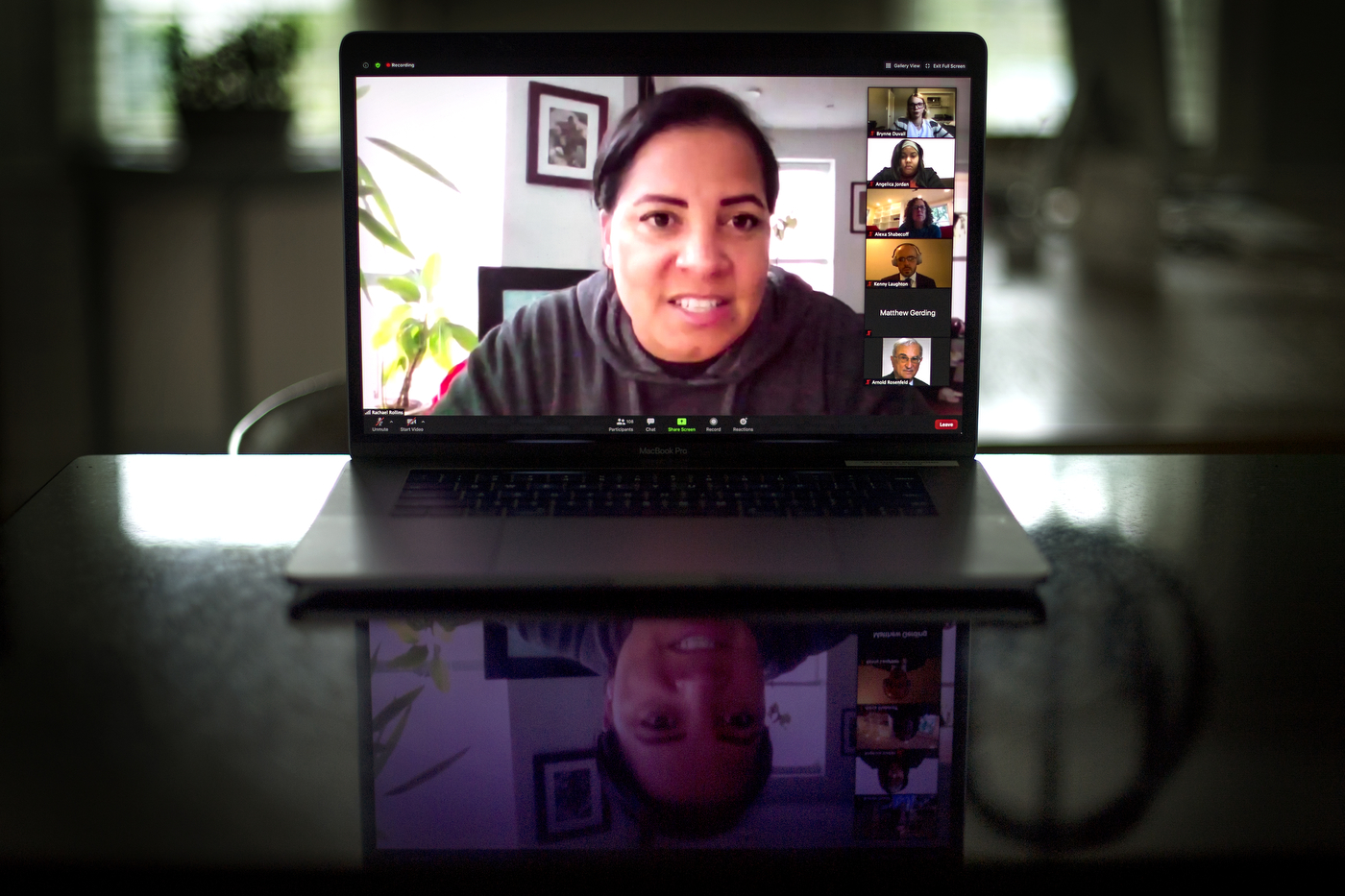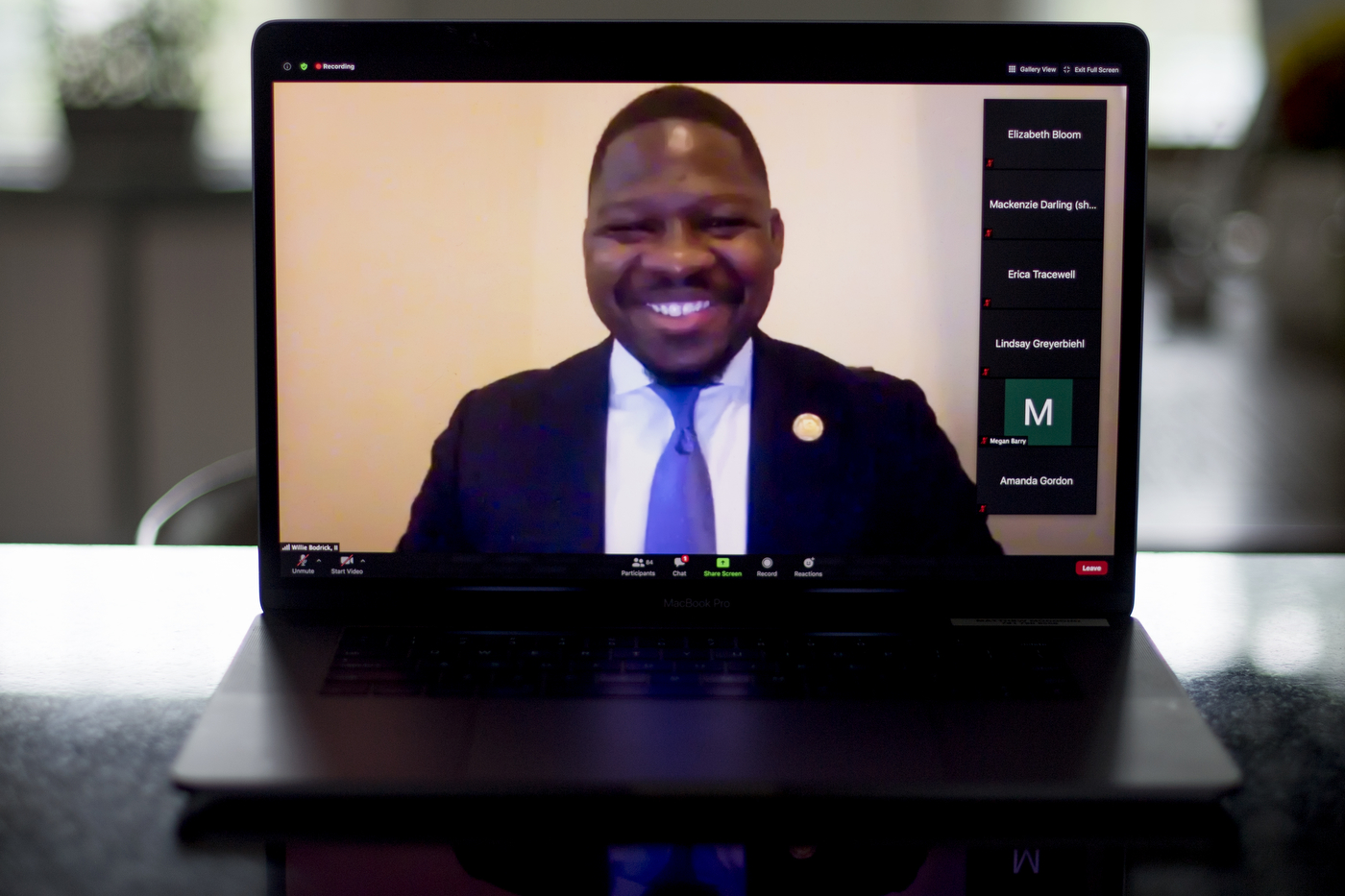‘We have to move to a place where non-serious, non-violent, non-dangerous actions do not involve police interaction’

Working as an assistant U.S. attorney, Deborah Ramirez saw the inequities in the criminal justice system in court every day.
“It didn’t take me long to see that most of the defendants in the courthouse were Latinx, were Black, came from very disadvantaged backgrounds,” said Ramirez, now a professor of law at Northeastern. “And I felt, and knew, that the system was disproportionately impacting communities of color, and I wondered what systemic things could be done to address that.”

Deborah Ramirez, a Northeastern law professor, spoke on a virtual panel about police reform with Rachael Rollins, Suffolk county district attorney, and Rev. Willie Bodrick II, senior advisor to U.S. Sen. Ed Markey and associate pastor at Twelfth Baptist Church. Photo by Matthew Modoono/Northeastern University
Ramirez spoke at a virtual panel about police accountability and reform organized by Northeastern’s School of Law. She was joined by Rachael Rollins, Suffolk county district attorney, and Rev. Willie Bodrick II, senior advisor to U.S. Sen. Ed Markey and associate pastor at Twelfth Baptist Church in Boston.
Rollins also spoke about her personal experiences on both sides of the court system. In one instance, she said, she had just left a job as an assistant U.S. attorney and she returned to that same courthouse for a family member who was a criminal defendant.
“I felt different—I was treated differently,” said Rollins, who graduated from Northeastern’s School of Law in 1997. “It wasn’t overt but it was very obvious. And if that’s me, imagine people who know nobody in that courthouse.”
Ramirez discussed the difficulties of punishing police officers through the court. Because even if a person wins a lawsuit against the police and receives a settlement, she said, the individual police officer doesn’t pay for it. Instead, the money comes from the city or municipality.
“It means that you as a taxpayer, me as a taxpayer, all of the 98 people on this feed, are going to pay 100 percent of the cost of illegal, unconstitutional, criminal police misconduct,” Ramirez said.
She proposed that police officers should be required to have professional liability insurance, like doctors. Under the current system for doctors, if a doctor is sued for medical malpractice, the money is paid from the insurance company. And the doctor’s insurance premiums go up. So if there is repeated negative behavior that is found in court to be the doctor’s fault, the insurance premiums continue to increase until they are priced out of the profession.
If this system applied to police officers, Ramirez said, taxpayers would no longer be paying for these lawsuits and the worst offenders would be priced out of police work.


Bodrick brought up his own experiences being profiled by police as a black man, and how communities need to invest in non-police responses to nonviolent issues, and create civilian review boards to evaluate police behavior.
“We have to move to a place where non-serious, non-violent, non-dangerous actions do not involve police interaction,” said Bodrick, who graduated from Northeastern’s School of Law this past spring.
Ramirez echoed the idea that reform needs to reduce the role of police, and narrow the scope of their power.
“We reduce, we narrow, then we reimagine,” she said.
All the speakers agreed that there needs to be an increase in transparency, and that in a reimagined criminal justice system, the police would be more in touch with community concerns.
“I reimagine where the community has a voice in what’s happening,” Rollins said. “I reimagine where it’s completely transparent instead of some black hole where we never see anything that’s happening.”
There are cops that are not racist, Ramirez said, but the overarching culture of policing is.
“A core problem with policing is its culture, which is insular, and which has a lot of racism in it,” Ramirez said. “And the police unions perpetuate that insulated, isolated, racist culture.”
And although the country is finally having a conversation about racism and policing, Bodrick said, that doesn’t mean that change will come easily.
“Any time you are shifting the status quo it’s going to make people uncomfortable,” Bodrick said. “What we’ve done for so long is we’ve kicked the can down the road. The marginal asks seem like it’s earth shifting. So I think we need to be prepared for a fight.”
For media inquiries, please contact media@northeastern.edu.




